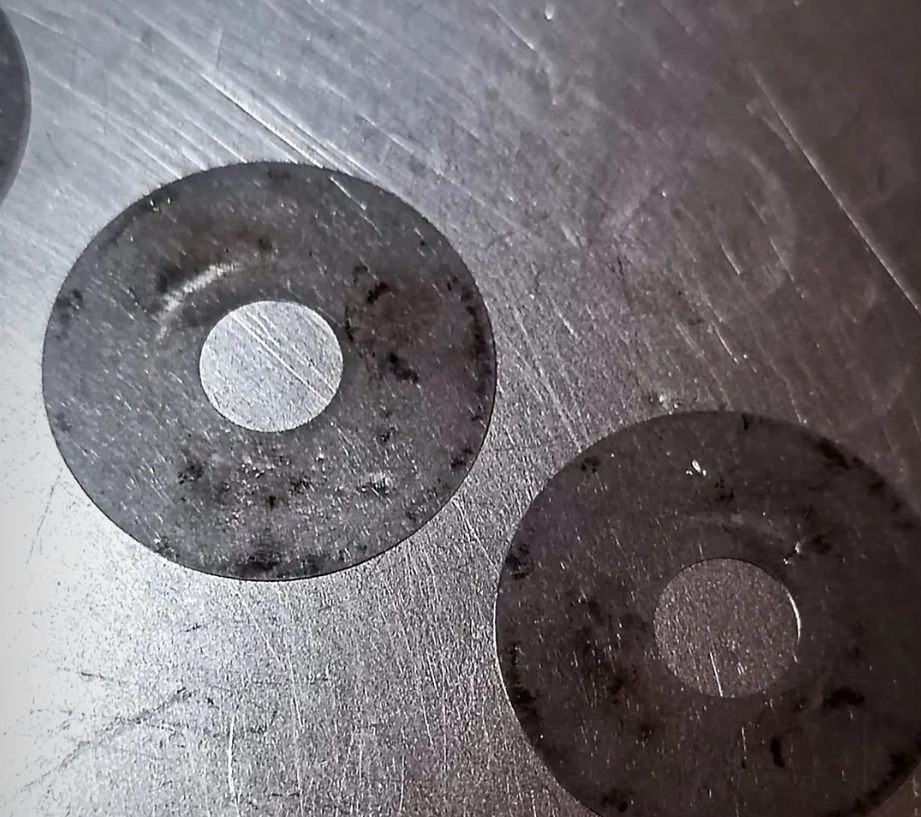Shock and Fork Corrosion and Role of Oil Type

We frequently observe internal corrosion and degradation of shims in shocks and forks, leading to a drop in both performance and functionality. Many wonder how this happens despite the presence of oil inside. The answer involves physics and chemistry. Based on our research and testing, we’ve gained several insights.
Your suspension works tirelessly to ensure a smooth ride and maximize performance, operating thousands of cycles in a short time. According to telemetry data, a shock can perform over 15,000 cycles in just 10 minutes, and forks function similarly. During these cycles, suspension heats up, causing friction and heating-cooling cycles. This breaks down the chemical chains in the oil, releasing compounds that negatively affect metal, aluminum, and rubber components, leading to internal material degradation, wear, and corrosion.

The Debate on Oil Quality
Without mentioning specific brands, we often discuss the differences between original oils and those we use, aiming to remain neutral and objective in pointing out issues and solutions.
Returning to oil and corrosion in hydraulic systems: in essence, heating-cooling cycles break down chemical bonds, causing degradation and corrosion. Choosing a high-quality oil can reduce this issue. Proper servicing and tuning can lead to lower suspension heating, improved performance, and longer service intervals, resulting in lower maintenance costs.






Leave a comment